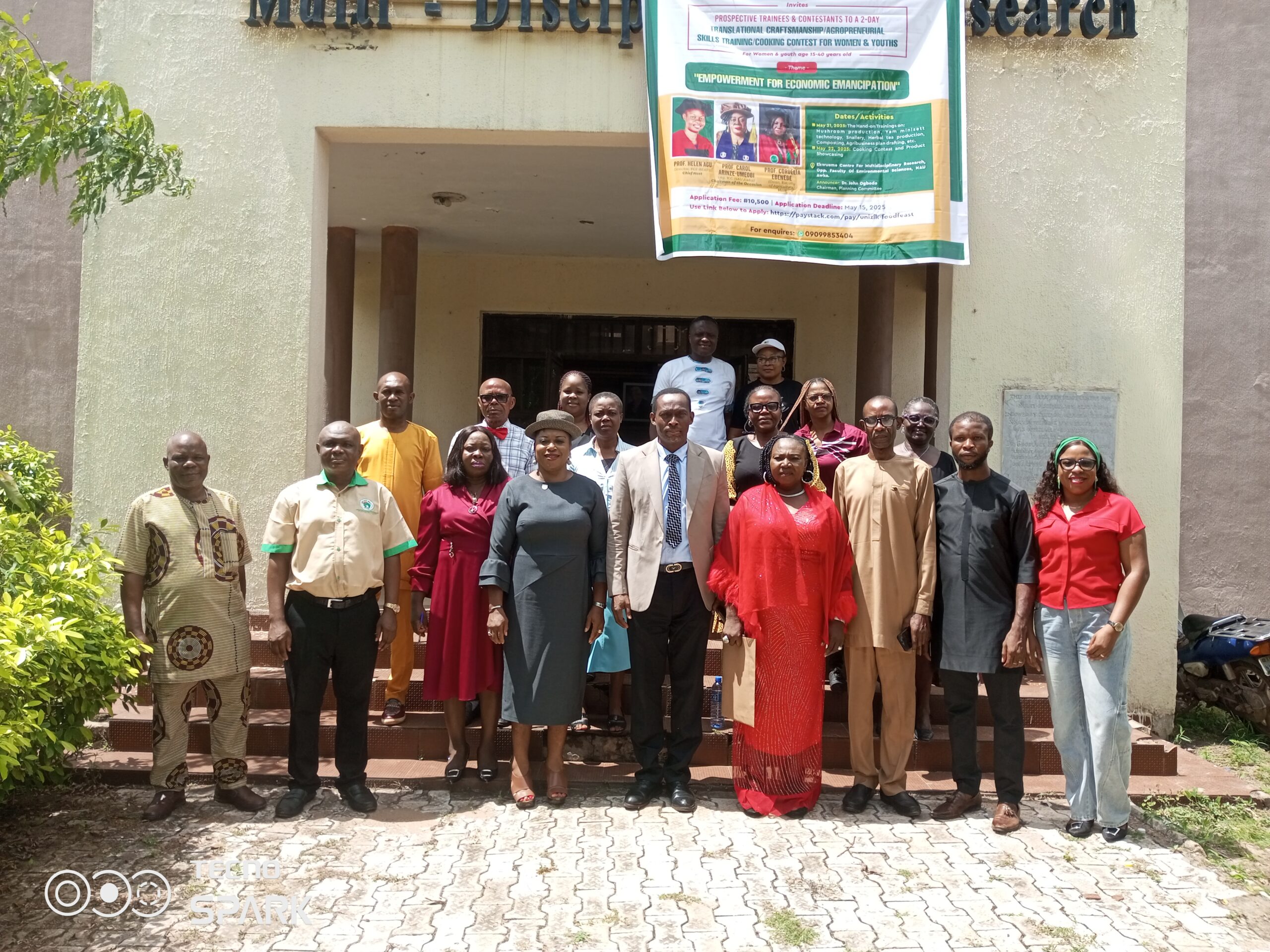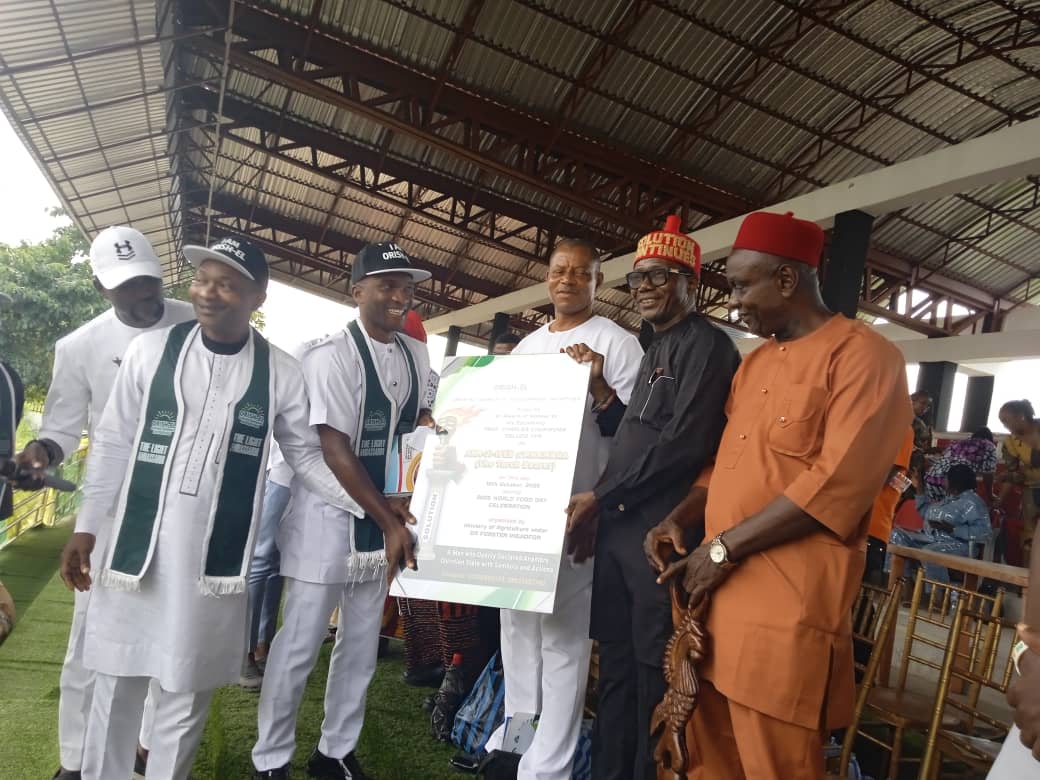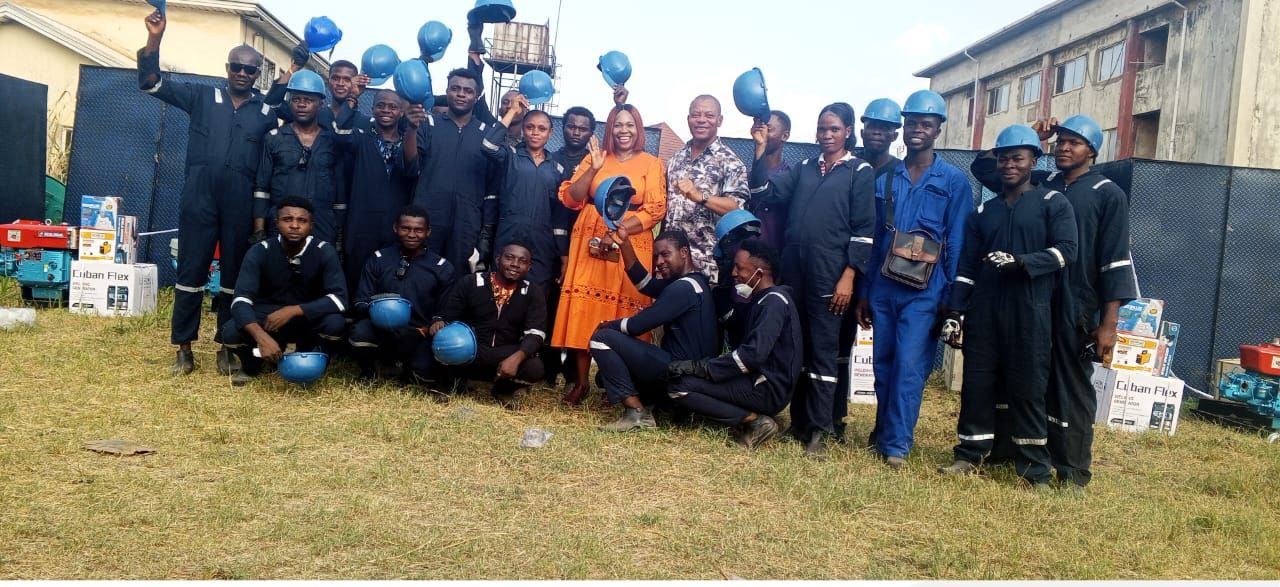The Acting Vice Chancellor, Nnamdi Azikiwe University Awka, Prof. Carol Arinze-Umeobi, says agriculture is not dirty vocation as many perceive it.
Prof. Umeobi regretted that the wrong notion that had existed for many years accounts for many students not proudly applying to study Agriculture in Nigerian universities.
The Vice Chancellor was addressing participants at a Food Festival, jointly organized by Faculty of Agriculture in collaboration with the TETFUND Centre of Excellence for Biomedical, Engineering and Agricultural Translational Studies (TCE BEATS).
Represented by the former Dean, Faculty of Engineering, Prof. Chuka Nwigbo, the Acting VC encouraged participants who were between 15 and 40 years of age to decide to become innovative problem solvers for enhanced food security and better livelihood.
“Whether in the United Kingdom or in Ifite-Awka, wherever you find yourself, the capacity you possess determines your efficiency, contribution to society, and eventual emolument you benefit.
“Some people say agriculture is a dirty job. I wish to change your reasoning. Engineers are the dirtiest. Medical doctors are also the dirtiest.
“All gynecologists are dirt pushers. More than 50% of women that deliver children poo. Also, 100% of all the children get soiled at birth. Doctors clean them up.
“In a theater where surgeons cut the human stomach open, it smells and stinks but doctors still stay put to do their work.
“For engineers working on sheet metal fabrication, there is a point you handle the metal and your hand stiffens. You lose romance in your hands. The scales of your hand will not feel the body of your wife.
Prof Arinze-Umeobi maintained that agriculture is one of the neatest professions.
“You just go to dig the ground and wash your hand. Agriculture is never a dirty job. Nothing smells in the farm. It’s only the sand that will touch your body.
Food fest, dream come through
In an address, the Dean, Faculty of Agriculture, Prof. Cordelia Ebenebe, expressed fulfillment about the Food Festival during her tenure.
“Since Enugu State organized food festival and Prof. Charles Ishiwu of our faculty was one of the resource persons, it has been on my mind.
“I told him that the food festival should be in faculty of agriculture. And all of a sudden, Prof. Helen Agu, TCE BEATS Director, said TCE BEATS will partner with us.
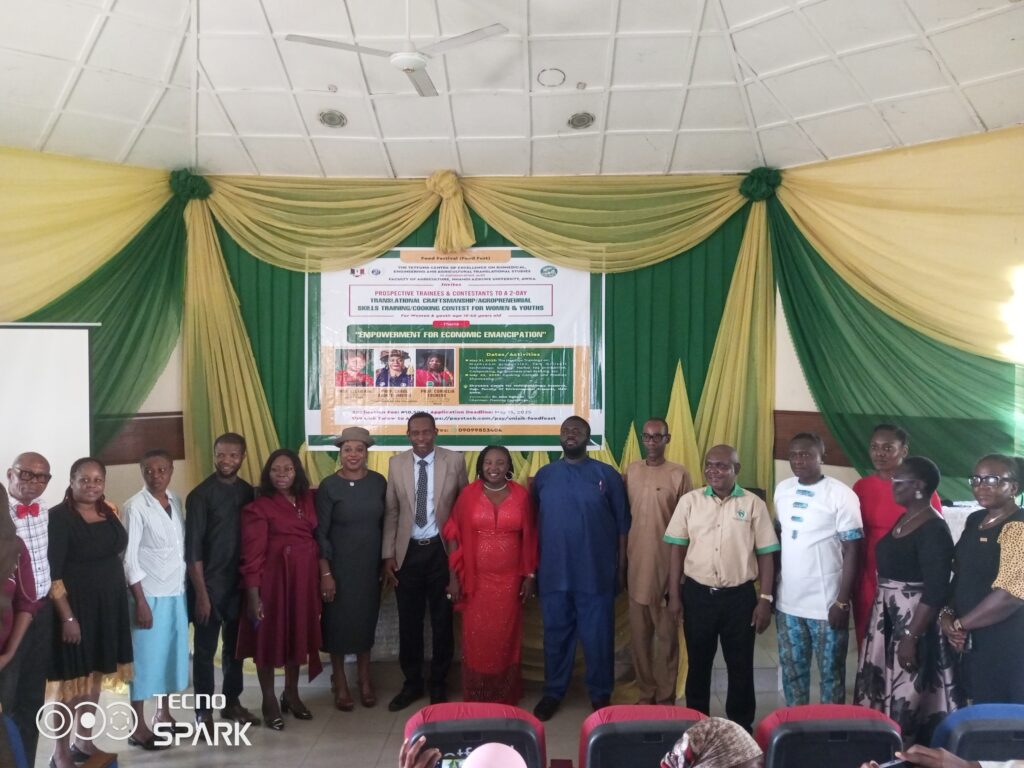
“I’m so happy this dream has been fulfilled today in my tenure as the Dean”.
Prof. Ebenebe argued that certificates, degrees are no longer enough to make a person what he should be in life.
Therefore, she advised the participants to acquire skills that will help them to make impact in life.
“Skills help you to get established but education is the foundation. Without it, you will just be wandering in ignorance.
“Apart from my meagre salary, I have a number of skills which make people invite me everywhere.
Milestone in turning knowledge into solutions
In an address, the Director, TCE BEATS, Prof. Helen Agu, remarked that the event marked another milestone in the mission to turn knowledge into solutions and skills into sustainable livelihoods.
“This program seeks to train 100 women and youths to become self-sufficient through practical skill-based learning.
“This is not charity. This is capacity building for long-term economic freedom.
“We are trying to build you up, like I said in my earlier talk, what you’re going to be in the future.
“TCE BEATS has also successfully organized a comprehensive training on new products and sustainable system design.
“These initiatives reflect our mandate to empower people with skills that bridge the gap between science and society, knowledge and enterprise, research and real-world impact”.
Trainees as Nigeria’s future entrepreneurs
The Central Planning Committee Chairman, Dr. John Ogbodo, described the participants as the future workforce and entrepreneurs that Nigeria will depend on.
He said, “A striking disparity exists in how Nigerian youths perceive different careers.
“Many people often conceive agriculture as an unprofitable field, leading many students to shy away from pursuing it.”
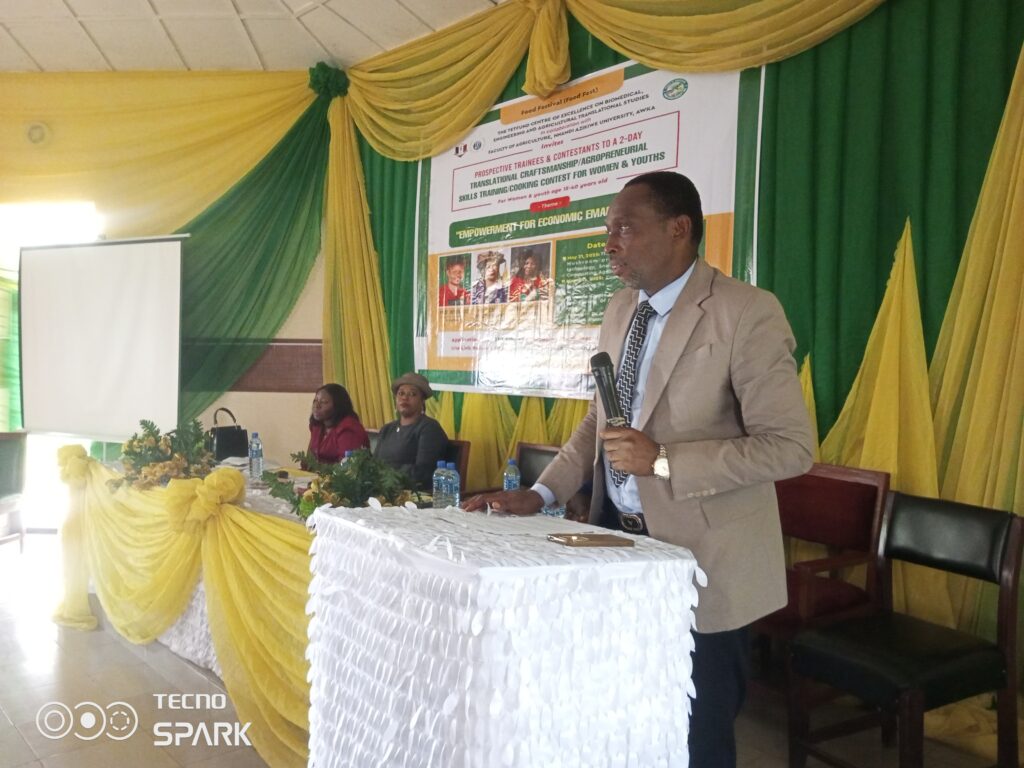
“Funny enough, people view road mechanics as dirty, but many young Nigerians still aspire to study mechanical engineering in universities.
Paradoxically, while mechanical engineering is viewed as a respected and lucrative field, agriculture – the backbone of our food security – is often perceived as a “dirty” career.
This contrast underscores the need for this capacity building training aimed at empowering agropreneurs for economic emancipation, emphasizing the modern and innovative aspects of agric-related fields.
It is against this backdrop that the Faculty of Agriculture, collaborating with TCE BEATS organizes this to give Nigerian youths and women a more nuanced understanding of the opportunities available in agriculture and related fields.”
Dr. Ogbodo’s remarks highlighted the need to rebrand agriculture and showcase its potential for innovation, entrepreneurship, and economic growth.
The two-day event featured presentations on entrepreneurship, business planning fundamentals, and mushroom production, processing and packaging.
Other skills taught to participants include cooking Igbo-style traditional dishes and cuisines, yam mini-setting technology as well as herbal tea and production and spicy.
The event climaxed with cash award and certificates to five young trainees, who took part in a food cooking competition.


